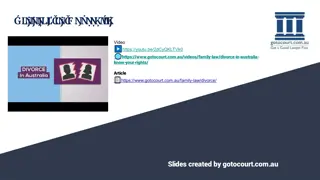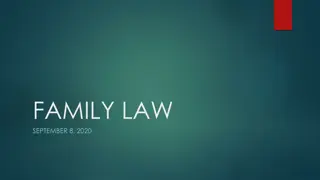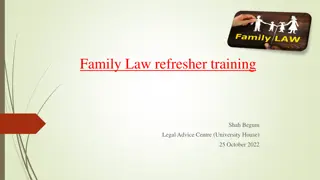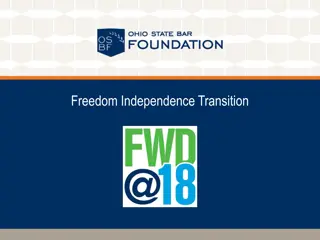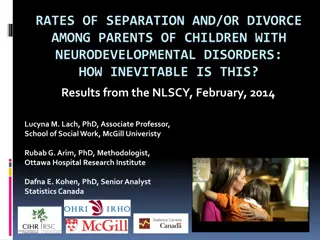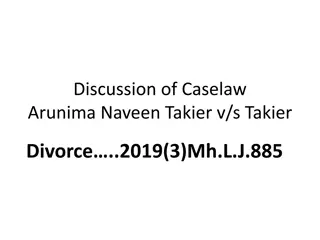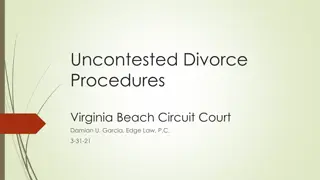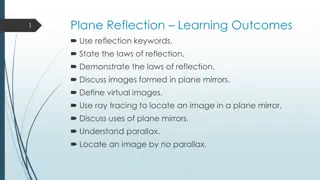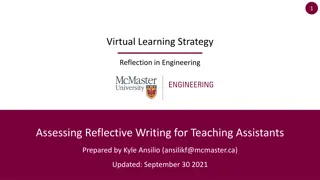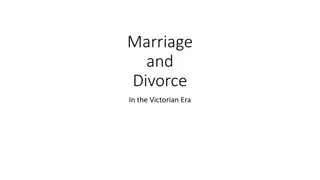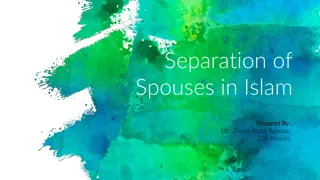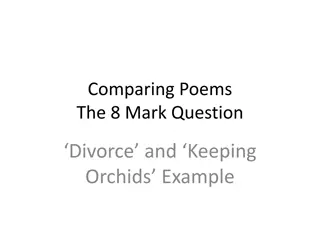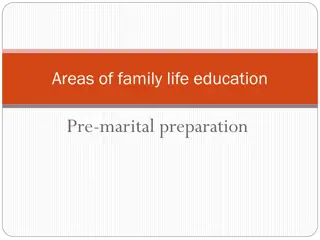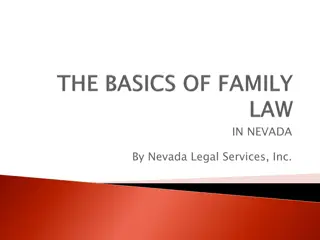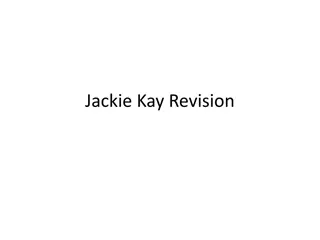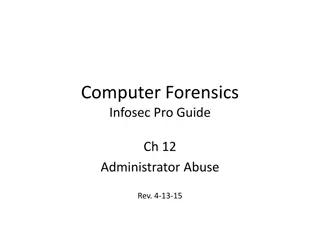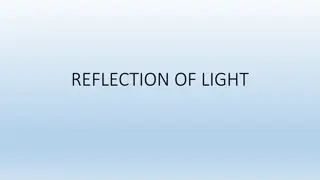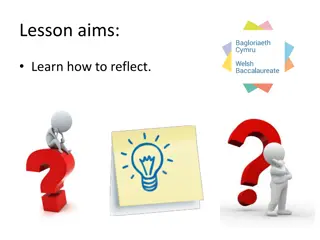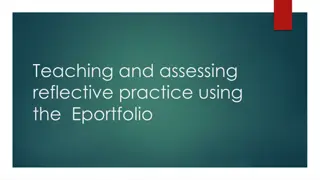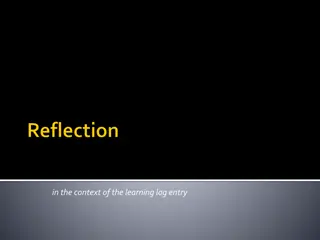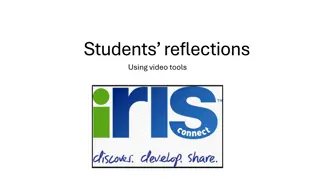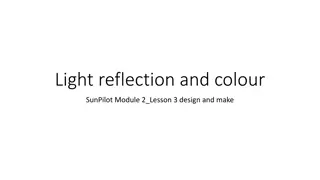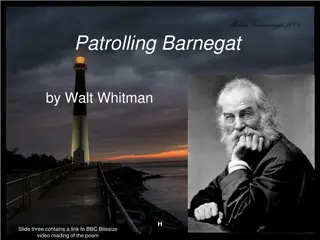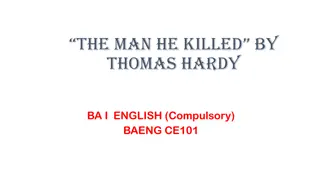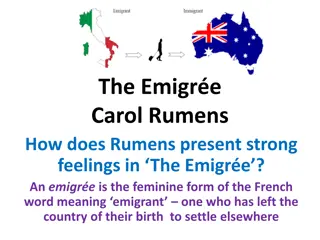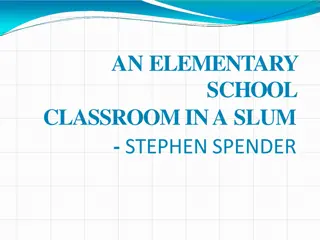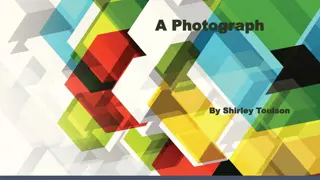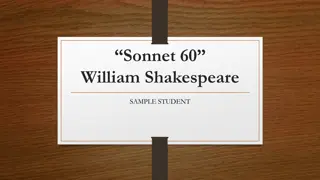Child's Poignant Reflection on Divorce
The light-hearted poem presents a child's perspective on divorce, revealing concerns about her parents' relationship and her own place within the family. Through humor and sadness, it explores themes of relationships, identity, and growing up, contrasting the world of children with that of adults.
Download Presentation

Please find below an Image/Link to download the presentation.
The content on the website is provided AS IS for your information and personal use only. It may not be sold, licensed, or shared on other websites without obtaining consent from the author. Download presentation by click this link. If you encounter any issues during the download, it is possible that the publisher has removed the file from their server.
E N D
Presentation Transcript
Divorce Summary Points This is a light-hearted poem which deals with the serious issue of divorce from an unusual perspective. The speaker, a young child, voices her concern about her parents relationship and that of hers with them. She appears to be reacting to a situation which has occurred at home. During this she has obviously stormed off after having been chastised. She then seems to calm down and starts to imagine how other children s parents act towards their offspring. Through this reverie we learn about what is lacking in her familial relationship. The poem then ends with the child assuming a more accusatory and demanding stance.
Divorce Significant Aspects Dramatic monologue Two stanzas, each of fourteen lines Rhyming couplet at the end of each stanza Contrasting tones between stanzas Humorous, sad and poignant Main themes: relationships, identity and belonging, growing up, emotions Contrast between child s and adults world
Parody imitation of a teenage strop. Speaker is dramatic and pompous there are things I cannot suffer any longer ; I would be better off in an orphanage. Ironic reversal in roles sees the parents as being rough and wild ; carries out chores without thanks in the way a parent typically would. Title - expectations are subverted; this is not about the breakdown of a marriage, but the separation of a child from their parents. Stanza 2 shift in tone from the grandiose to something softer and more perceptive. Uses imagery to convey fantasies of the perfect parents repetition of there are only serves to emphasise that this fantasy is unrealistic and does not exist.
Annotations 1. Underline any I in the poem What does it make you think about the speaker? 2. Circle any negative words What does this tell you about how the speaker feels? 3. Label all examples of exaggeration/hyperbole
Annotations 4. Underline and label 3 similes and/or metaphors what are they describing? Why is it important? 5. What is unusual about the title? 6. What does suffer suggest about the speaker s life?
Annotations 7. never, ever what does this make us think about her reaction? 8. chores what person/type of person does this make you think of? Why is this important/unusual? 9. Underline/Highlight any references to her attitude towards parents what does it tell us about her family relationship?
Annotations 10. hump what two things could this word refer to here? What effect does this have? 11.Underline any questions what do they tell us about the personality of the speaker compared with that of the father?
Annotations 12.Underline any short sentences what does it tell us about the way the speaker is talking? 13. rough and wild who is the speaker describing? Who sounds rough and wild in the poem? Why? 14.Label and explain a way the end of the poem sounds both dramatic and humorous.
Divorce Provide evidence from the poem for your answers. 1. Who is the narrator? (2 marks) 2. What tone does the poem have? (2marks) 3. Summarise the ways in which the speaker s parents are annoying to her. (4 marks) 4. How is imagery used to create an idea of the perfect parents in lines 16-24? (4marks) 5. How does the language in lines 24-28 show the speaker s anger? (4 marks)
Divorce Provide evidence from the poem for your answers. 1. Who is the narrator? (2 marks) 2. What tone does the poem have? (2marks) 3. Summarise the ways in which the speaker s parents are annoying to her. (4 marks) 4. How is imagery used to create an idea of the perfect parents in lines 16-24? (4marks) 5. How does the language in lines 24-28 show the speaker s anger? (4 marks)


